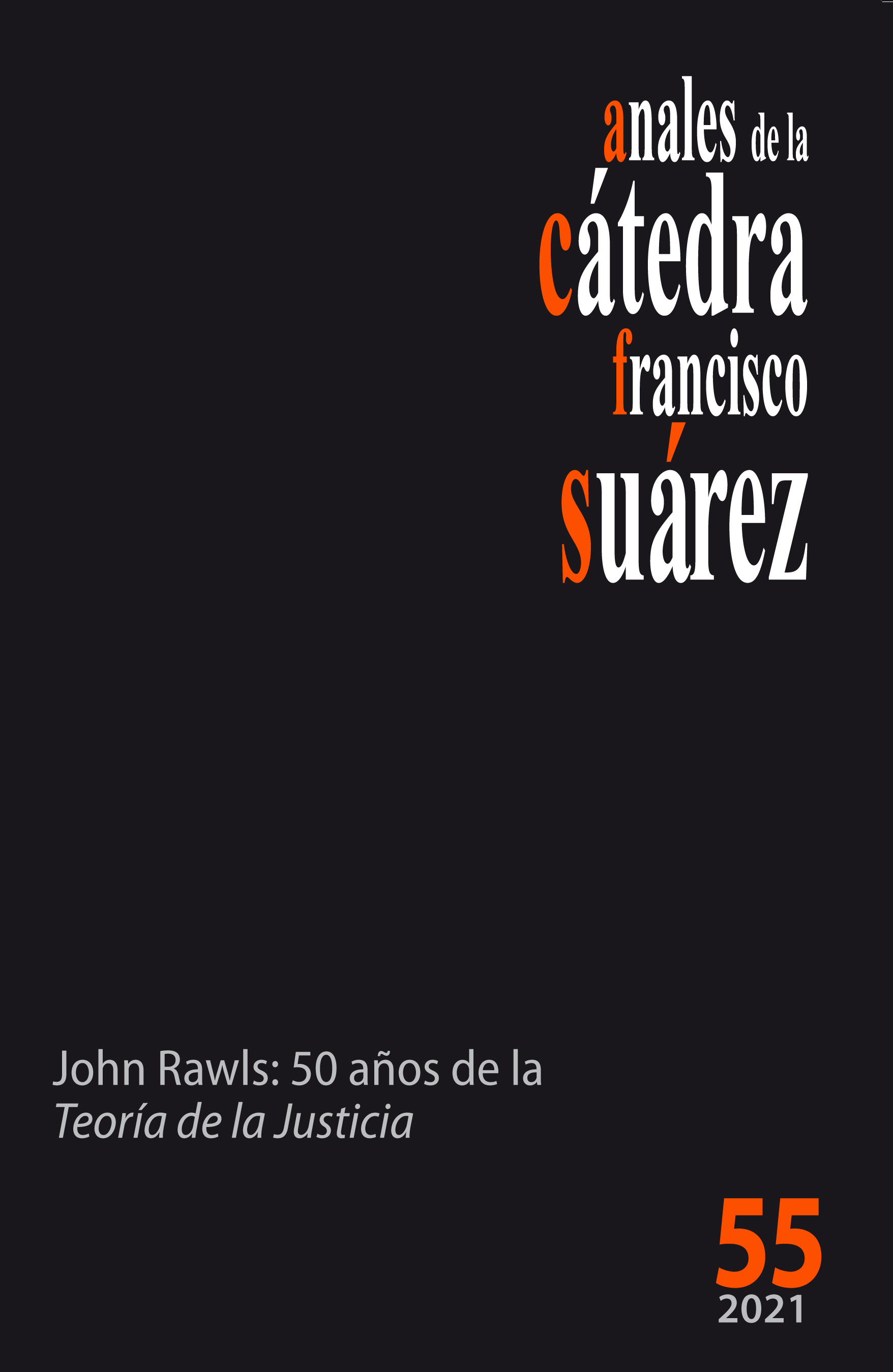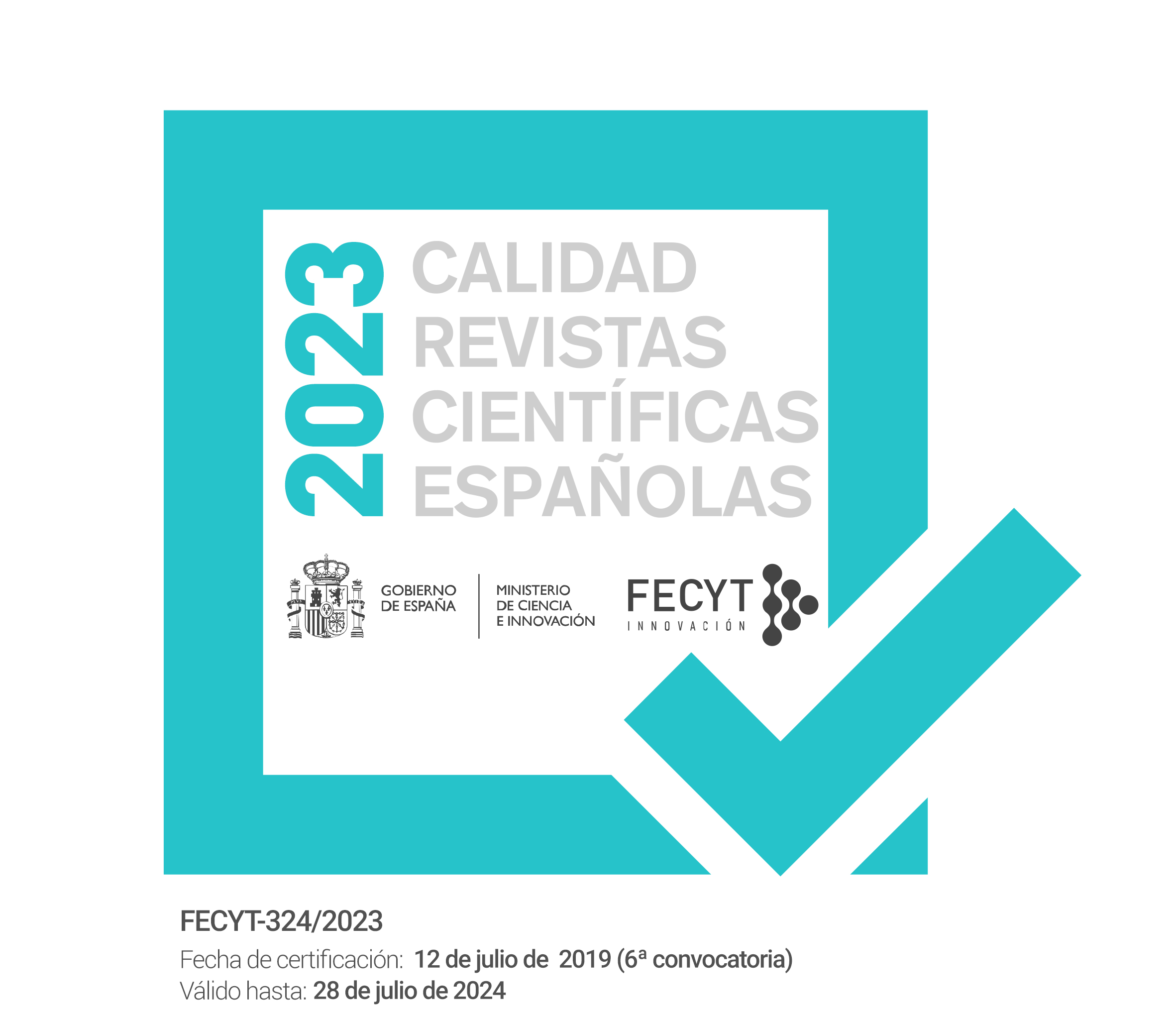Liberal Pluralism, Public Reason, and the Basic Freedoms
DOI:
https://doi.org/10.30827/acfs.v55i0.16705Palabras clave:
constitutional rights, liberalism, liberal pluralism, public reason, freedom of religion, proportionalityResumen
Taking religious freedom as illustrative, this essay proposes a theory of the basic freedoms that pacifies the conflict among libertarian, egalitarian, and communitarian sects of liberalism. This theory follows John Rawls’s suggestion that constitutional courts are exemplars of public reason but rejects his partisan construal of public reason in terms that only an egalitarian liberal would recognize. If, as Rawls argues, liberal pluralism is reasonable and if constitutional courts are guardians of public reason, then an ideal constitutional court will guide itself by the theory of the basic freedoms that reconciles liberal pluralism with the rule of public reason. Such a theory will integrate the plurality of liberal sects into an inclusive liberalism that preserves a distinctive role for each in defining and limiting constitutional rights, while refining them of the errors resulting from their hegemonic ambitions. Liberal pluralism is thus preserved, but liberal fragmentation is overcome. Public reason is sought not through an escape from pluralism but in a logical concord among the denominations of liberalism. The way for courts to execute this concord in constitutional cases is to follow the method of reasoning they have already largely adopted. That method is proportionality review.
Descargas
Citas
Alexy, Robert (1986). A Theory of Constitutional Rights (Oxford: Oxford University Press, 2002.
Barak, Aharon (2012). Proportionality: Constitutional Rights and their Limitations. Cambridge: Cambridge University Press.
Beatty, David (2004). The Ultimate Rule of Law. Oxford: Oxford University Press.
Brudner, Alan (2004). Constitutional Goods. Oxford: Oxford University Press.
Brudner, Alan (2017). The Owl and the Rooster: Hegel’s Transformative Political Science. Cambridge: Cambridge University Press.
Camus, Albert (1951). The Rebel. Trad. Anthony Bower. Nueva York: Vintage, 1956.
Dicey, A. V. (1897). Introduction to the Study of the Law of the Constitution, (10th ed. London: Macmillan, 1959).
Dworkin, Ronald (1977). Taking Rights Seriously. Cambridge, Mass.: Harvard University Press, 1977.
Dworkin, Ronald (1985). A Matter of Principle. Cambridge, Mass.: Harvard University Press.
Dworkin, Ronald (1996). Freedom’s Law. Cambridge, Mass.: Harvard University Press.
Dworkin, Ronald (2000). Sovereign Virtue. Cambridge, Mass.: Harvard University Press.
Ely, John Hart (1980). Democracy and Distrust. Cambridge, Mass.: Harvard University Press, 1980.
Fuller, Lon (1969). The Morality of Law, ed. rev. New Haven: Yale University Press.
Habermas, Jurgen (1986). Between Facts and Norms. Trad. W. Rehg. Cambridge, Mass.: MIT Press, 1996.
Hart, H. L. A. (1961). The Concept of Law, 3ª ed., Oxford: Clarendon Press, 2012.
Hegel, G. W. F. (1812). The Logic of Hegel. Trad. William Wallace. Oxford: Oxford University Press, 1892.
Kant, Immanuel (1797) The Metaphysics of Morals, trad. M. Gregor. Cambridge: Cambridge University Press, 1991.
Kymlicka, Will (1989). Liberalism, Community, and Culture. Oxford: Clarendon Press.
Perry, Michael (1991). “The Legitimacy of Particular Conceptions of Constitutional Interpretation”. Virginia Law Review, 77.
Rawls, John (1993). Political Liberalism. Nueva York: Columbia University Press.
Sandel, Michael (1982). Liberalism and the Limits of Justice. Cambridge: Cambridge University Press
Weinrib, Jacob (2016). Dimensions of Dignity: The Theory and Practice of Modern Constitutional Law. Cambridge: Cambridge University Press.
Descargas
Publicado
Cómo citar
Número
Sección
Licencia
Los nombres y direcciones de correo-e introducidos en esta revista se usarán exclusivamente para los fines declarados por esta revista y no estarán disponibles para ningún otro propósito u otra persona.
Los autores y autoras poseen los derechos sobre sus trabajos. Los ACFS ruegan que se haga constar la publicación en los mismos si aparecieran con posterioridad en otro medio.

















